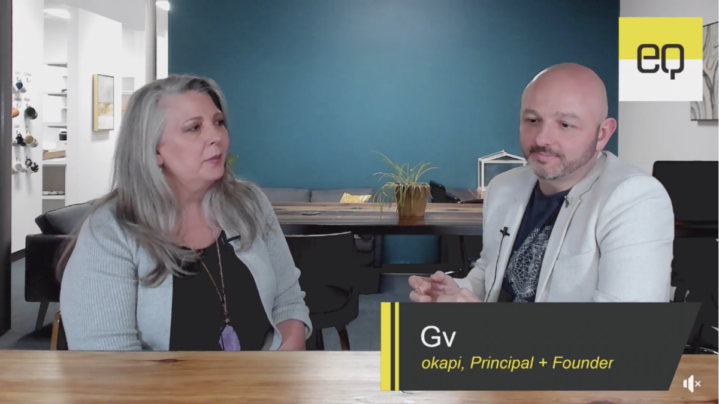
Divest Yourself of Golden Handcuffs

Writing by GV Freeman. GV Freeman is a smart-creative, entrepreneur, consultant, connector and author. For 20 years he’s been helping professional service and software companies grow and transform their sales, marketing, product, and technology operations through a holistic approach to strategy, process and alignment. Shane is the founder of Conscious Shala, a “Third-Space” for holistic community workshops and author of the SaaS Field Manual and in his personal life is a dedicated yogi, avid concert goer and lifelong learner.
In 2016, Howard Love wrote the book The Start-Up J Curve: The Six Steps to Entrepreneurial Success. For simplicity’s sake, I’ll paraphrase the journey through the six stages.
Imagine a graph where the trend line starts at 0 and immediately dips below the x-axis (horizontal) for the first 3 out of the 6 stages of a startup. Finally, at stage 4 the line once again crosses the x-axis and moves back into positive numbers.
From stage 0 to 4 your startup is operating in a deficit: financially, operationally, and energetically. What I mean by this is that you as the founder will be putting far more energy into the business than you will be getting back.
This is one of the most emotionally challenging endeavors and periods entrepreneurs face. Operating at a deficit for an extended period of time is what sends many founders into states of depression and substance abuse.
About the time you’re ready to break even, you hire your first employee. Then you take on some funding.
Then you get your first big customer. Every one of these “milestones” in your business – which to you as a new founder feels like success – are actually waves in an ocean slowly eroding the underpinnings of your freedom.
Now, rather than reporting to a boss, you’re reporting to your employees, your investors, and your customers. Now, instead of taking the two weeks of paid vacation you had at your last job, you’re hauling your laptop to the beach to answer support tickets.
Now, rather than cashing your guaranteed paycheck, you’re making less money than your employees because you need the extra cash to pay for more server space after a big new sales win. You’re over-committed.
But once you’ve passed stage 4 and are operating in the black, things feel like they can get fun again. You start making money and “enjoying” your life. You buy a bigger house; maybe get a new car.
Hell, you’ve always wanted to try your hand at sailing so a new boat should be in order. And since you have a new boat, you’ll need to find somewhere to dock it.
The tricky part of this is that what begins to feel like freedom are just more traps in disguise. Every one of the new items you acquire begins to complicate your life even further.
The car can only be serviced by the dealership. The boat needs a lot of love and attention. And the new house requires a lot more maintenance than you thought it would. You thought you scored a field goal but in reality, someone was secretly moving the goalposts each time your turned around.
With each amenity we add to improve our satisfaction comes yet another wave crashing onto our eroding shores of freedom. Each item adds complexity to your life that you now have to manage. Each complication leads to less and less freedom.
As entrepreneurs, our goal is to manifest success in the form of valuations, employees, property; the list goes on. Might I suggest that rather than spending all your energy manifesting more, consider the possibility of needing less. That kind of contentment requires much less maintenance.

